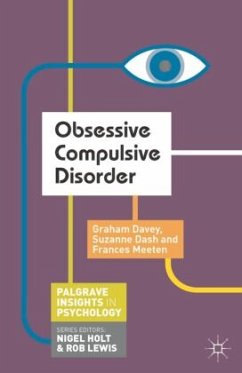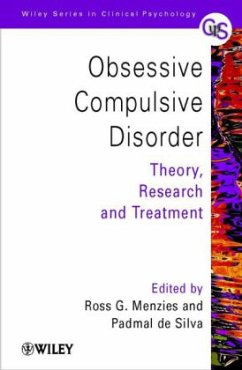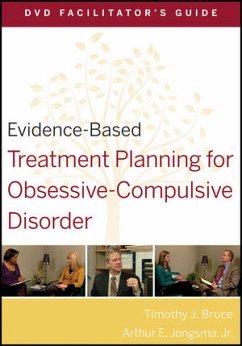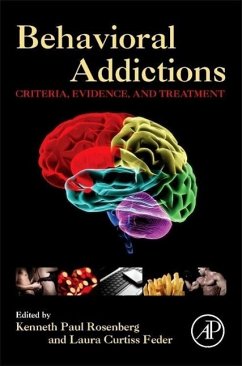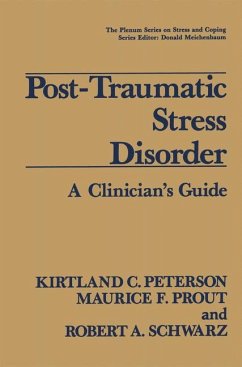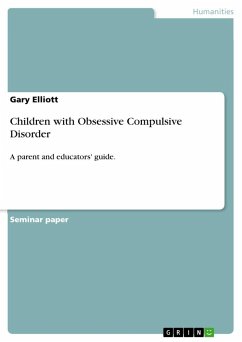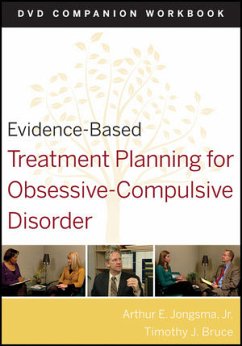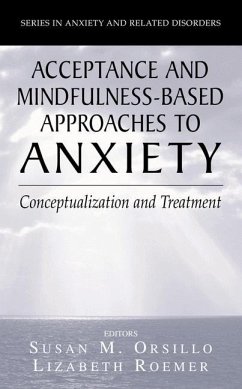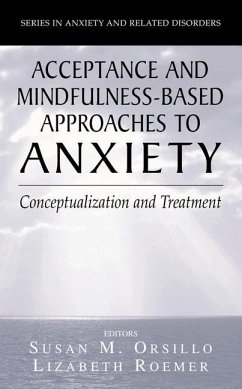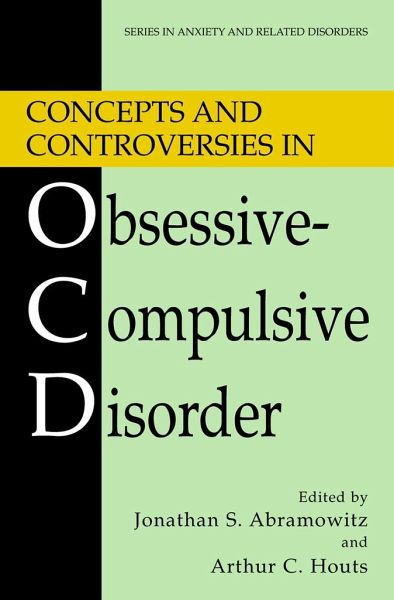
Concepts and Controversies in Obsessive-Compulsive Disorder

PAYBACK Punkte
38 °P sammeln!
This unique volume gives readers a front-row seat at an exciting and crucial symposium.
Recent advances in theory and treatment have significantly increased our understanding of obsessive-compulsive disorder (OCD). Yet research on OCD generally falls in categories of either behavioral or biological, and rarely do the two meet. Concepts and Controversies in Obsessive-Compulsive Disorder bridges this gap admirably. Featuring an international panel of 42 experts, this volume focuses in depth on-and presents opposing viewpoints to -the seven conceptual and practical disputes that characterize the field today:
- categorical versus dimensional perspectives on symptoms
- animal versus behavioral models
- single OCD entity versus OCD spectrum
- neuropsychiatric versus cognitive-behavioral models
- cognitive therapy versus exposure therapy
- self-directed versus therapist-directed treatment
- medication versus cognitive-behavioral therapy
These issues are presented in a debate format, with each side contributing a position paper on the topic, followed by a rebuttal from the opposite perspective. To further enrich the debate, timely chapters examine special areas such as sexual addictions, body dysmorphic disorder, trichotillomania, Tourette's syndrome, and compulsive shopping in the context of OCD.
This level of discussion and argument, with its possibility for collaboration and integration, makes Concepts and Controveries of Obsessive Compulsive Disorder unique and productive reading for students, researchers, and therapists of all orientations as they design the next generation of theory and greater nuances of treatment.
Recent advances in theory and treatment have significantly increased our understanding of obsessive-compulsive disorder (OCD). Yet research on OCD generally falls in categories of either behavioral or biological, and rarely do the two meet. Concepts and Controversies in Obsessive-Compulsive Disorder bridges this gap admirably. Featuring an international panel of 42 experts, this volume focuses in depth on-and presents opposing viewpoints to -the seven conceptual and practical disputes that characterize the field today:
- categorical versus dimensional perspectives on symptoms
- animal versus behavioral models
- single OCD entity versus OCD spectrum
- neuropsychiatric versus cognitive-behavioral models
- cognitive therapy versus exposure therapy
- self-directed versus therapist-directed treatment
- medication versus cognitive-behavioral therapy
These issues are presented in a debate format, with each side contributing a position paper on the topic, followed by a rebuttal from the opposite perspective. To further enrich the debate, timely chapters examine special areas such as sexual addictions, body dysmorphic disorder, trichotillomania, Tourette's syndrome, and compulsive shopping in the context of OCD.
This level of discussion and argument, with its possibility for collaboration and integration, makes Concepts and Controveries of Obsessive Compulsive Disorder unique and productive reading for students, researchers, and therapists of all orientations as they design the next generation of theory and greater nuances of treatment.
Few syndromes in psychopathology generate as much popular curiosity and clinical exploration as does obsessive-compulsive disorder (OCD). Since the 1970s, research on OCD has increased exponentially. Speci?c advances include an improved grasp of the heterogeneity of the disorder, identi?cation of putative subtyping schemes, and the development of increasingly sophisticated theoretical models of the etiology and maintenance. Perhaps most importantly, research has led to advances in treatment; andwhereasthe?rstlinetherapies(cognitive-behaviortherapyandserotonergicm- ication) are not entirely effective for every sufferer, they have transformed OCD from an unmanageable lifetime af?iction into a treatable problem that need not reduce quality of life. Despite the aforementioned advances, there have emerged a number of sharp disagreements concerning OCD. Differences have surfaced over phenomenological issues, etiological models, and approaches to treatment, and often occur (but not exclusively) along disciplinary lines between biologically oriented and cogniti- behaviorally oriented authorities. For example, medical approaches posit that abn- mal biological processes cause OCD, whereas psychosocial formulations emphasize the role of learning and dysfunctional cognitions. Yet because theoretical conjecture andempirical?ndingsfromwithineachtraditionaretypicallyaddressedtowardd- tinct and narrow audiences, clinicians, researchers, and students with broad interests are hindered from gaining a clear grasp of the diverse (and sometimes polarized) perspectives.




